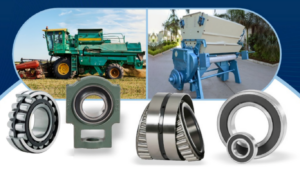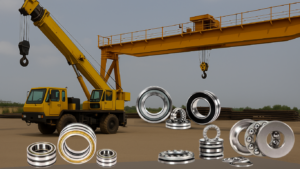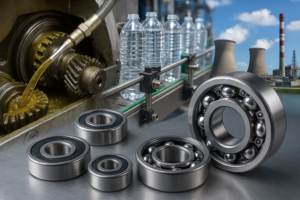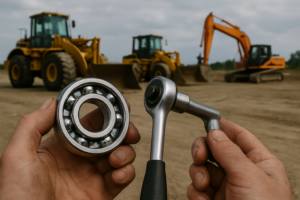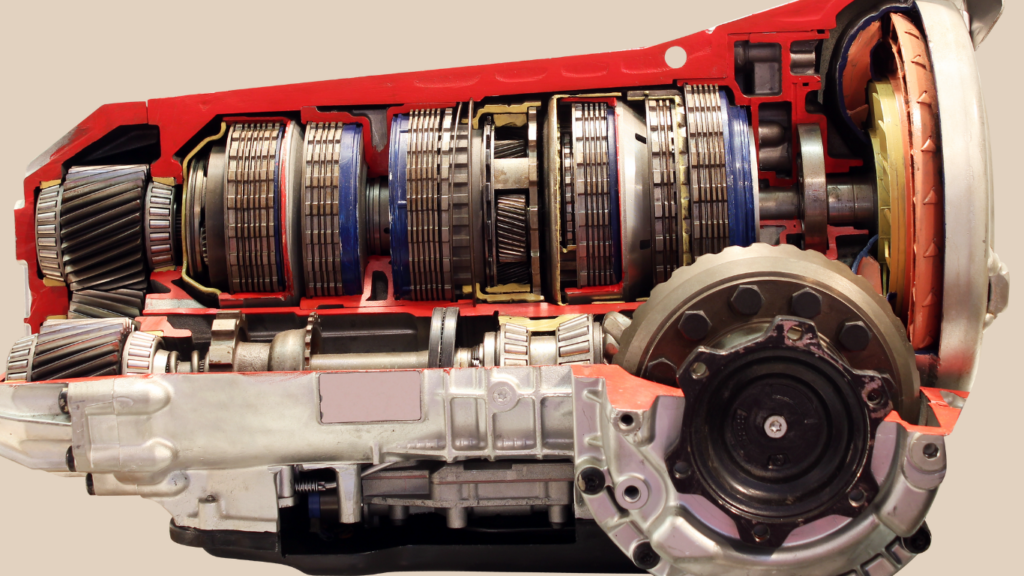One of the most important elements in the domain of mechanical engineering and machinery are gearboxes. They are fundamental constituents that facilitate seamless operations of numerous machines as well as systems within different sectors. The bearing selection is among the most influential factors on gearbox performance. ZNL Bearings, a top-rated manufacturer of bearings, recognizes how a proper choice of a bearing has a huge influence on efficiency, dependability and durability of gearboxes. This blog post will delve into the subject matter of bearing selection in relation to gearbox performance by outlining significant considerations and best practices.
Mechanism Of Gearboxes

Power transmission between components is what gearboxes are designed for since they can also change speed and torque during this process. Industrial machinery, automotive applications, wind generators, among other systems often contain these gears. In general, it includes gears, shafts, bearings and housing units as core constituents of any gearbox assembly. Bearings are particularly crucial because they provide support for rotating shafts while ensuring that gears engage properly with each other’s teeth positions.
The Functions of Bearings in Gearboxes

Bearings are multi-purpose:
- Load Support: Bearings carry both vertical and horizontal loads, thus equipping the gear box to withstand influences experienced during its operation.
- Reduced Friction: The presence of reducing friction between moving parts through bearings makes better efficiency and less wear out.
- Alignment: They help gears and shafts to keep their right positioning to minimize wear and tear and make operations run smoothly.
- Vibration Damping: Dampening of noise by the gearbox happens through selecting the right bearings that can absorb vibrations even though very minute ones.
Consequently, bearing selection is an important decision that can have a significant impact on overall gearbox performance.
Factors Influencing Bearing Selection For Gearboxes

Several factors must be taken into consideration when selecting bearings for gearboxes:
- Load capacity of the bearing in terms of axial as well as radial loading it has to encounter should be determined since appropriate load rating helps in choosing suitable bearings under anticipated conditions.
- When it comes to speed rating bearings have a maximum rating for speed, above which their efficiency may reduce resulting in more friction, heat and possible collapse. It is significant that you choose bearings that can work within the speeds the gearbox was intended to work at.
- Check on the operating environment The setting where the gearbox operates affects greatly in terms of bearing selection. This includes temperature, humidity level, exposure to pollutants and corrosive substances among others. Therefore, seals on bearings should be selected accordingly as well as corrosion resistant materials to be used in harsh environments.
- Another factor is precision and tolerance. The overall accuracy and efficiency of the gearbox are affected by precision and tolerance of bearing. High precision bearings suffice better alignment thus smooth running conditions necessary for high performance applications.
- Lubrication has to be looked upon carefully. The correct lubrication is important for bearing performance and durability purposes whilst taking into consideration factors like type of lubrication used (grease or oil) as well as method of lubrication such manual automatic or self-lubricating bearings based on application requirements.
- Reducing noise and vibration in automotive gearboxes among others where noise/vibration are critical parameters; it is important to select low noise/vibration bearings by design and market.
Effect of Bearing Choice on Gearbox Performance

- Efficiency: By reducing the friction, the appropriate bearing enhances the gearbox’s efficiency, which leads to reduced energy consumption and operational costs.
- Durability and Longevity: An adequate choice of bearings can greatly extend a gearboxes lifespan. Bearings that accept different loads without wearing out fast with time diminishes the requirement for frequent maintenance and replacements.
- Noise and Vibration Reduction: The operation of quieter gears is usually facilitated by noise reduction design bearings. For instance, in an electric vehicle or precision machinery, this is crucial as there has been some issues on noise levels.
- Thermal Management: Low heat production by efficient bearings is important to maintain the overall thermal equilibrium in a gearbox. Unlike a gearbox that can generate excessive heat leading to lubricant break down and component wear; managing temperature through proper bearing selection is therefore important.
- Reliability: Choosing correct bearings improves overall dependability of a gearbox while reducing downtime, enhancing output and raising general performance of machines.
Conclusion
When you design a gearbox, choosing the right bearing is very important. ZNL Bearings knows how significant the choice of bearing can be for efficiency, durability and overall operational performance. By considering factors such as load capacity, speed rating, operating environment, precision, lubrication and noise and vibration requirements, engineers can make informed decisions that enhance gearbox performance.
To ensure gearboxes run smoothly and keep your machines reliable in the long term it pays to invest in high quality bearings from a reputable manufacturer like ZNL Bearings. The significance of careful bearing selection will only increase as industries grow and their machinery becomes more demanding in terms of performance. Therefore, let us at ZNL Bearings help you optimize gearbox performance by providing superior bearing solutions.




